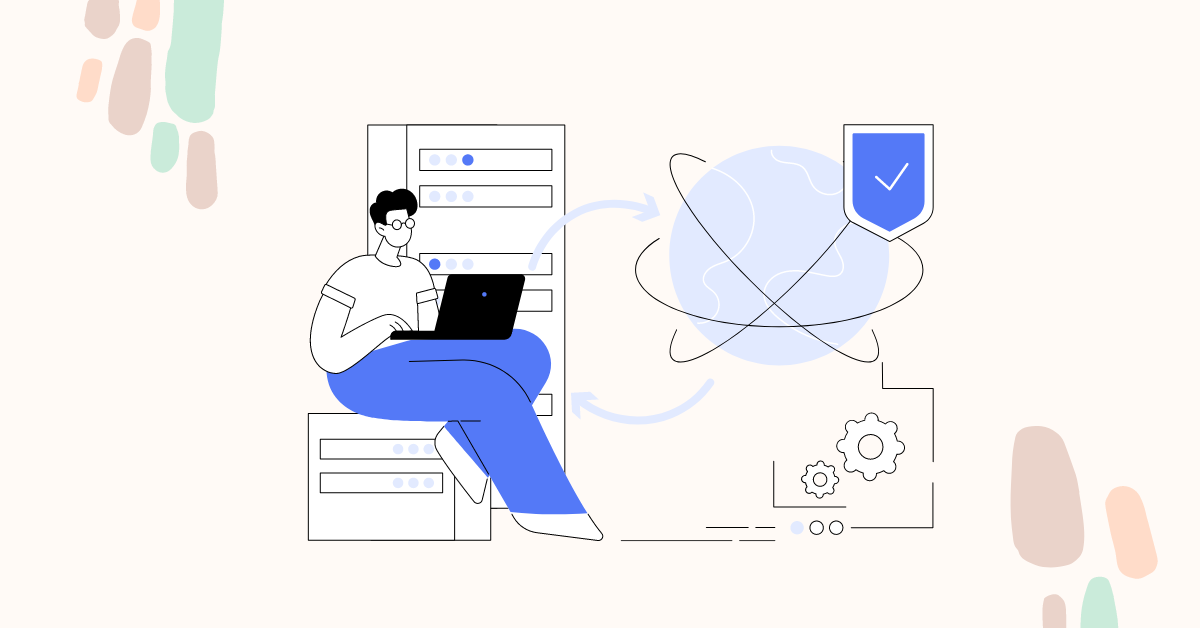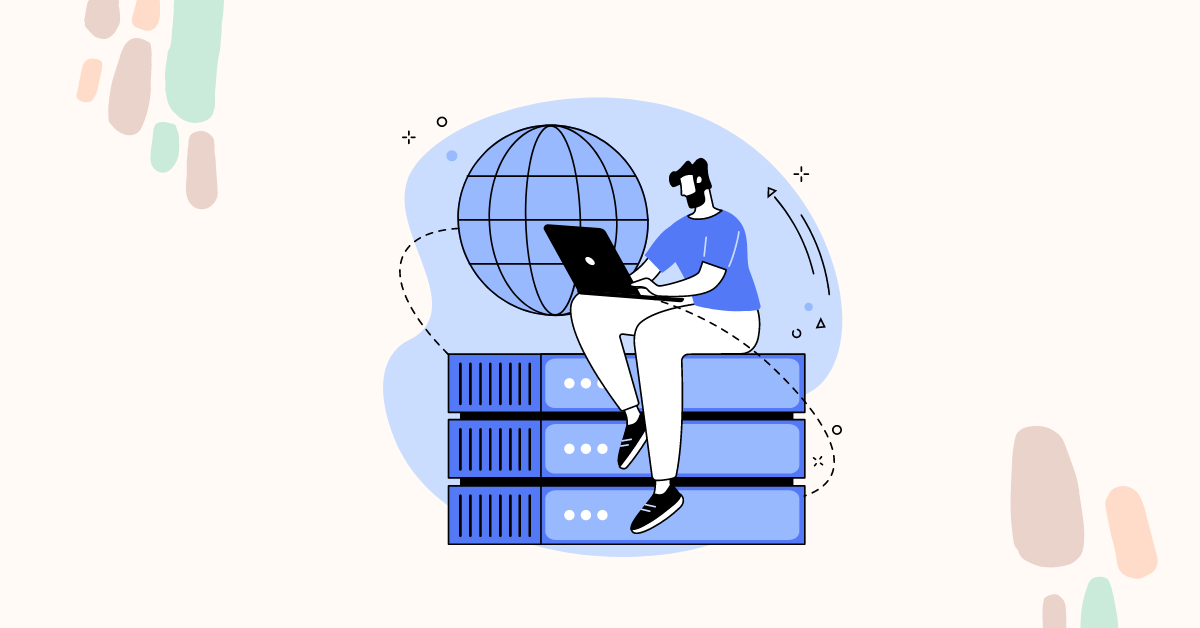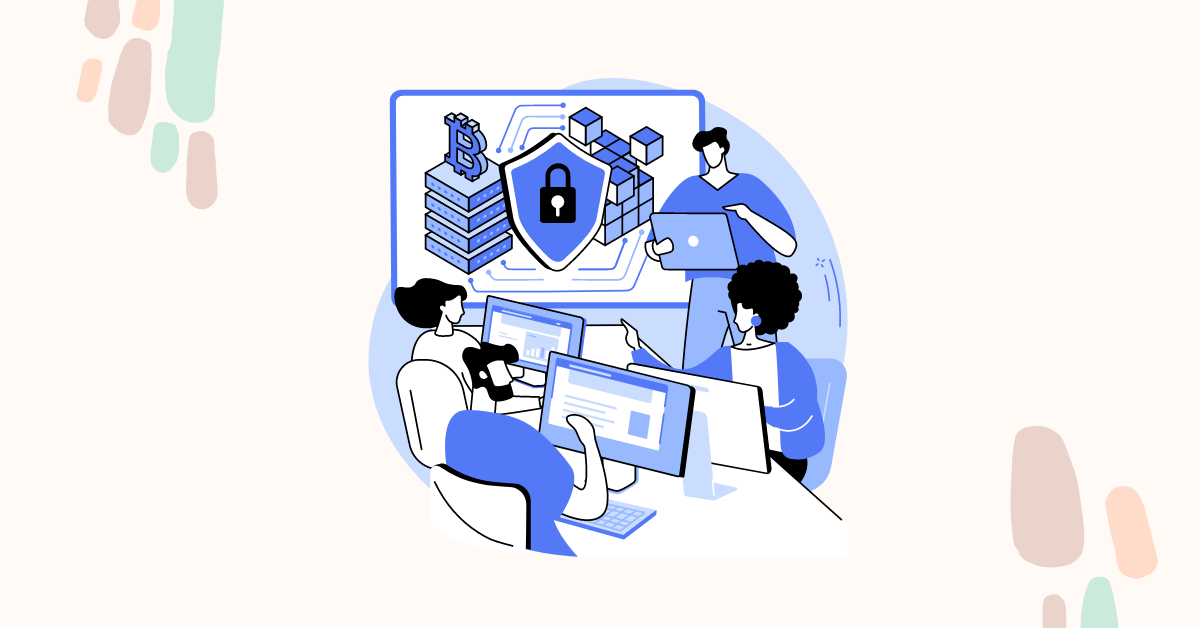ISP vs Residential proxies : What are the differences?
Among the various proxy types, two main options stand tall: residential proxies and ISP proxies.
2024/5/7
Discover the key differences between proxy servers and anonymizers in this guide. Learn how each enhances security and privacy, their benefits, and which is right for you.
In today's digital landscape, where data breaches are a constant threat and online anonymity is increasingly important, security is paramount. Proxy servers and anonymizers are two common tools used to enhance privacy and security online. This article will explore their functions, working principles, and benefits, as well as highlight the key differences between them.
A proxy server is an intermediary server that acts as a gateway between a user's device and the internet. It retrieves data from an internet source, such as a website, on behalf of the user. There are different types of proxy servers, such as forward proxies, reverse proxies, anonymous proxies, and transparent proxies, each serving different purposes.
The basic working principle of a proxy server is as follows:
1. The user sends a request to access a website or online resource through their web browser or application.
2. The request is first sent to the proxy server, instead of directly to the target website.
3. The proxy server then forwards the request to the actual website or resource on the user's behalf.
4. The website's response is sent back to the proxy server.
5. The proxy server then forwards the response back to the user's device.

Proxy servers can hide a user's IP address, making their online activities more anonymous and protecting their privacy. When a user connects through a proxy, the proxy's IP address is seen by the websites they visit instead of the user's own IP address.
Proxy servers can be used to filter and control the content that users can access on the internet. Organizations often use proxy servers to restrict access to certain websites or online resources for their employees.
Proxy servers act as a buffer between a user's device and the internet, providing an additional layer of security. They can monitor and block malicious traffic, protecting the user's network from cyber threats.
Proxy servers can cache frequently accessed content, reducing the load on the original web servers and improving the user's browsing experience. This is especially beneficial for organizations with multiple users accessing the same online resources.
Proxy servers can be used to bypass internet restrictions, such as geo-blocking, that prevent users from accessing certain websites or online content based on their location.
Anonymizers, also known as anonymous proxies, are a type of proxy server designed to provide users with anonymity and privacy on the internet. They work by concealing the user's identity and IP address when accessing online resources.
This is achieved through a series of steps:
1. The user's request is first sent to the anonymizer server instead of directly to the target website.
2. The anonymizer server then forwards the request to the target website, masking the user's IP address and replacing it with the anonymizer's own IP address.
3. The response from the website is routed back through the anonymizer server before being delivered to the user.
By using an anonymizer, the target website only sees the IP address of the anonymizer, providing a layer of anonymity and helping to protect the user's privacy. Anonymizers can employ various techniques to enhance privacy further, such as encrypting the user's traffic, routing it through multiple proxy servers, or using advanced anonymization protocols like Tor or I2P.

Anonymizers conceal a user's identity and IP address, making it difficult for third parties to track and identify individuals online. This provides a layer of anonymity and helps protect the user's privacy.
Anonymizers employ advanced techniques like encryption and routing traffic through multiple proxy servers to further enhance privacy and security. This makes it harder for attackers to intercept and access sensitive user data. For example, encryption ensures that even if data is intercepted, it remains unreadable without the decryption key.
Anonymizers are essential for compliance with data protection regulations like the GDPR, which mandate the use of techniques like anonymization to safeguard personal data. Failing to use anonymizers can result in severe penalties for organizations, including fines and legal actions.
Anonymizers protect against the risks of cyberattacks by rendering stolen data useless to hackers, as the anonymized information cannot be easily traced back to the original user. This enhances the overall security of user data and reduces the impact of data breaches.
Anonymizers enable the use of data for analysis and sharing purposes while maintaining user privacy, which is crucial for organizations handling sensitive information, such as healthcare providers or public administrations.
Proxy servers can hide the user's IP address, but may still provide some identifying information to the websites they access. Anonymizers, on the other hand, are specifically designed to provide a higher level of anonymity by concealing the user's identity and IP address more effectively.
Proxy servers do not necessarily encrypt the user's internet traffic, leaving it vulnerable to interception. Anonymizers, however, can employ additional encryption techniques to further protect the user's data and online activities.
Proxy servers typically only protect the traffic from a specific application or browser, while a user may have other unprotected internet activities. Anonymizers can provide protection for all of the user's internet traffic, regardless of the application or device used.
Proxy servers can be set up and configured at the user, network, or organizational level, offering flexibility in deployment. In contrast, anonymizers are often web-based services that users can access directly without any additional software or configuration, making them easier to use for individuals.
Proxy servers may still leave traces of the user's activities on the intermediate servers, which could potentially be accessed by third parties. Anonymizers aim to completely obfuscate the user's online activities, making them more difficult to trace back to the original user. This enhanced privacy protection helps prevent unauthorized access to user information.

Before deciding, consider these factors:
1. Level of Anonymity Needed: Determine if you require complete invisibility or moderate protection.
2. Specific Security Requirements: Assess if you need features like malware filtering, content blocking, or data encryption.
Proxy Servers: Ideal for organizations needing internet control, enhanced security, and improved network performance. Also useful for individuals accessing sensitive information on public Wi-Fi networks.
Anonymizers: Perfect for individuals seeking online privacy, journalists protecting sources, activists circumventing censorship, and anyone desiring greater anonymity in their online interactions.
When choosing, prioritize reputable providers with strong security protocols and transparent privacy policies.
GoProxy, based in Hong Kong, is a premier provider of high-quality proxy services. It aggregates a diverse range of IP resources from top-tier Internet Service Providers, such as AT&T, Verizon and Cogent Communications, to establish its own extensive proxy network.
With over 90 million IPs, you can easily access more than 200 countries, breaking geo-restrictions .For users seeking to elevate their online experience, GoProxy emerges as a top-tier option.
Explore GoProxy's services with a risk-free 7-day trial and experience the flexibility of our tailored plans, starting at just $1.50 per GB.
Both proxy servers and anonymizers play important roles in cybersecurity. While both can hide a user's IP address and provide some level of anonymity, proxy servers generally offer basic anonymity and access to restricted content. In contrast, anonymizers focus on advanced anonymity and privacy protection, often employing more sophisticated techniques.
To build a strong digital defense, it's essential to understand the strengths of each tool and align them with your specific needs. When choosing between a proxy server and an anonymizer, consider the level of privacy and security you require.
If you have any questions or need further information about proxies, feel free to contact us at [email protected] or connect with us through Telegram.
< Previous
Next >
 Cancel anytime
Cancel anytime No credit card required
No credit card required